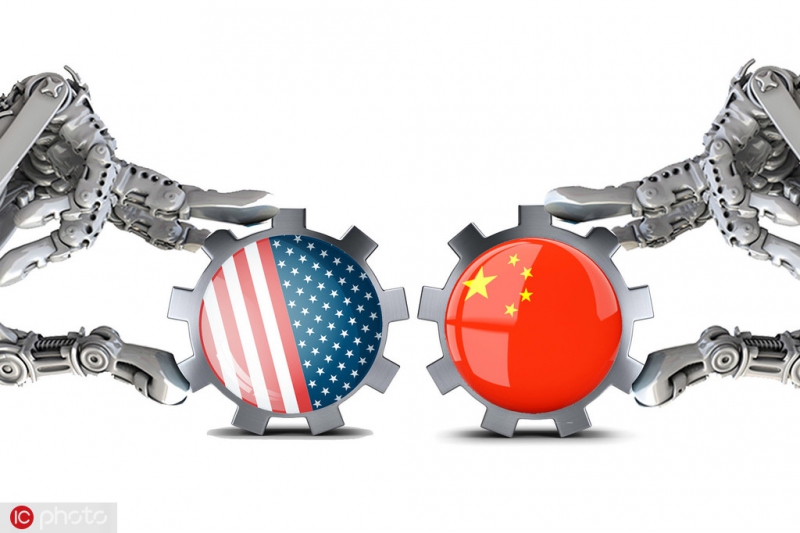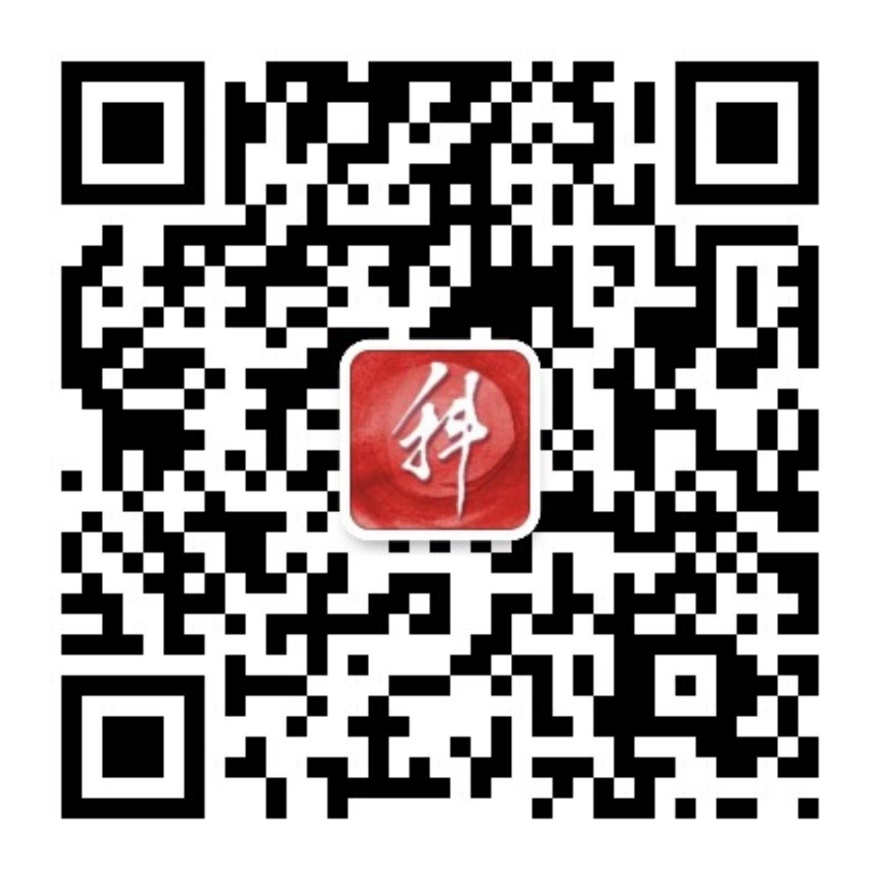胡志坚院长接受中国日报专访——“中美双方只有通过合作才能谋求发展大计”
Technology strategist hails successful projects achieved through cooperation

The United States and China have benefited greatly from cooperation in science, technology and innovation, a senior Chinese science strategist said, lamenting the recent protectionist turn in the US.
Hu Zhijian, president of the Chinese Academy of Science and Technology for Development, said an objective appreciation of such accomplishments would help ease recent technology and trade frictions and reveal new grounds for win-win cooperation between the countries.
China and the US had been close partners in integrated research and development for most of the past four decades, Hu said.
From 2012 to 2015, the number of collaborative research projects involving Chinese and US institutions increased by more than 80 percent, according to a blue paper on China's contribution to STI and global governance published by the academy last year. Chinese and US scientists had co-authored more than 55,000 papers by 2014.
Moreover, scientists from both countries had cooperated on climate change, clean energy, environmental protection, health, agriculture and other fields related to sustainable development and people's livelihoods, the blue paper said.
It added that Chinese enterprises had set up research and development facilities in the US, while US companies had established more than 800 R&D centers in China covering industries including electronics, information technology, software, food manufacturing, cosmetics, home furnishing and finance.
"These interactions have created a flow of talent and know-how to provide better products and services for the people of both countries and the world," Hu said.
Over time, China and US had developed different but crucial positions in the global industrial system and value chain, Hu said. The US was at the top, given its leading position in STI and emerging industries, while China was at the middle and lower end of the industrial and value chain, but striving to climb up.
Like Japan, Singapore, South Korea and other countries before it, China was improving its people's living standards through education, trade, infrastructure investment and technologies.
"These feats mean China will inevitably close its gap with developed countries," Hu said. "But it does not mean China wants to or is capable of challenging the US's global dominance."
Historically, China's technological rise was not an issue that troubled the US, he said, because the US maintained its lead role by attracting the best talent from around the world to fuel its STI efforts - pushing new frontiers, making new products and climbing up the industrial value chain.
"However, STI development is an arduous process, and the US has grown increasingly anxious that its lead is being eroded," Hu said. "So instead of staying ahead via continued innovation, it has turned protectionist toward China and other developing countries and used unconventional means, from tariffs to travel restrictions, in the hope of keeping them behind."
At the same time, the US was plagued by many domestic issues, ranging from growing social inequality to rising corporate influence, and ordinary US people, notably those from Midwestern states, felt disenfranchised by globalization and technological progress because "the fruits of these trends have been mostly reaped by the elites from coastal states".
"When internal issues become too difficult to handle, politicians often rely on scapegoating to divert public frustration and attract support, especially during election years," Hu said.
"But the US public must realize that blaming China and other countries for its economic, social and existential woes will not solve its issues, it will only exacerbate them to disastrous levels for all."
Despite the US's effort to disconnect with China, Hu said full detachment was unlikely in the long run because it would not be in the interests of either country.
"China's market and its pivotal role in the global industrial chain are too important for US companies to give up," he said.
In addition, science requires the exchange of ideas and collaboration to progress. When faced with common challenges, from climate change to changing ethical landscapes in artificial intelligence and biosciences, "it will require a global joint effort to find the best solution to tackle these emerging issues," Hu said.
"Dividing the scientific community and the world, as some politicians are implying, is dangerous and counterintuitive to maximizing the potential of science and its benefit for the people," he said.
Given the unpredictability of the current US administration, China needs to "keep a rational, objective outlook and focus on improving its own capability at its own pace", he said. "We must have the confidence and patience to get through turbulent times."
科技战略专家呼吁通过合作谋求发展大计
中国一位资深科学战略专家表示,美国和中国均在科学、技术和创新方面的合作中受益匪浅,并对美国最近逐渐抬头的保护主义感到遗憾。
中国科学技术发展战略研究院(以下简称“战略研究院”)院长胡志坚表示,客观地理解两国在合作上取得的成就有助于缓解中美近期的技术和贸易摩擦,并能揭示两国之间重新合作共赢的新可能。
胡志坚说:“过去四十年的大部分时间里,中美两国在研发方面一直是密切的合作伙伴”。
根据战略研究院去年发布的关于中国科技进步对世界的贡献与全球科技创新治理的蓝皮书所述,2012年至2015年,中美两国研究机构共同参与的合作研究项目数量增加逾80%。截至2014年,中美两国的科学家共同撰写了逾55,000篇论文。
此外,蓝皮书提到,两国科学家在气候变化、清洁能源、环境保护、健康、农业以及与可持续发展和人民生活有关的其他领域进行了合作。
蓝皮书还提到,中国企业在美国设立了研发机构,而且美国公司在中国建立了800多个研发中心,涵盖电子、信息技术、软件、食品生产、化妆品、家居和金融等领域。
“这些互动创造了两国人才和技术的相互交换和流动,从而为两国和全世界人民提供了更好的产品和服务,”胡志坚说。
胡志坚表示,随着时间的推移,中美两国在全球工业体系和价值链中发展到了不同但至关重要的地位。鉴于美国在科技创新和新兴产业中的领先地位,其已雄踞顶端位置,反观中国处于工业和价值链的中低端,但正在努力攀升。
与排在中国前面的日本、新加坡、韩国和其他国家一样,中国正在通过教育、贸易、基础设施投资和技术提高人民的生活水平。
“这些举措意味着中国将不可避免地缩小与发达国家之间的差距,”胡志坚说,“但这并不意味着中国想要或者有能力挑战美国的全球统治地位。”
他说,从历史上看,中国的技术崛起并非构成困扰美国的问题,因为美国通过吸引世界各地的优秀人才来推动其科技创新的不断向前–开拓新的前沿领域,制造新产品和攀登工业价值链,以此来维持其领先地位。
“然而,科技创新的发展是一个艰难的过程,美国对于其领先优势受到削弱感到深深的焦虑,”胡志坚说,“因此,美国不是通过持续创新,而是在面对中国和其他发展中国家时奉行保护主义,并采用从关税到旅行限制等非常规手段,以期保持自身的领先地位。”
与此同时,美国受到许多国内问题的困扰,从不断加剧的社会不平等到不断增强的企业影响力,普通美国人,特别是来自中西部各州的美国人,被全球化和技术进步所剥夺,因为“这些趋势的成果大多掌握在沿海各州的精英手里”。
“当美国国内问题变得难以处理时,政客们常常依靠替罪羊来转移公众的挫败感并相应获得选民支持,特别是在总统大选期间,”胡志坚说。
“但美国公众必须意识到,将本国经济、社会和存在的困境归咎于中国和其他国家并不能解决它的问题,反而只会使得这些问题得到恶化,直至对所有人来说灾难性的地步。”
胡志坚表示,尽管美国努力与中国断绝关系,但从长远来看两国不太可能完全脱离,因为这不符合两国的利益。
“中国市场及其在全球产业链中的关键作用对美国公司来说太重要了,无法抛弃与其之间的联系”他说。
此外,科学需要思想交流和共同协作才能取得进步。胡志坚表示,当面对从气候变化到人工智能和生物科学领域里不断变化的道德观念等共同的挑战,“需要全球共同努力,以便找到解决这些新问题的最佳解决方案。”
“正如一些政客所暗示的那样,将科学界和世界分离开,对于最大限度地发挥科学潜力及其最大程度地造福人民来说,是危险的且违反常理的,”他说。
鉴于当前美国政府的不可预测性,中国需要“保持理性、客观的态度,并且专注于按照自己的节奏来谋求国家发展”,他说,“我们必须有信心和耐心才能度过动荡时期。”
 联系我们
联系我们
地址:中国 北京市海淀区玉渊潭南路8号 邮编(ZIP):100038
电话(Tel):86-10-58884543 咨询:webmaster@casted.org.cn 新闻与信息:xxxz@casted.org.cn
![]() 版权所有 中国科学技术发展战略研究院 备案号/经营许可证备号:京ICP备10036465号-11
技术支持:中研网
版权所有 中国科学技术发展战略研究院 备案号/经营许可证备号:京ICP备10036465号-11
技术支持:中研网




